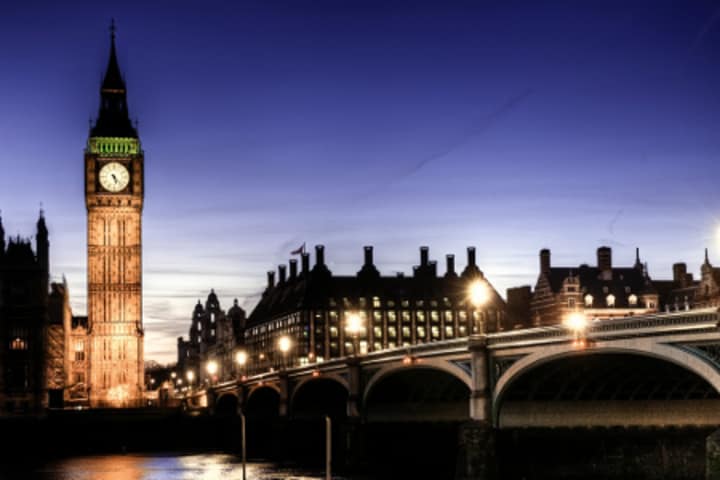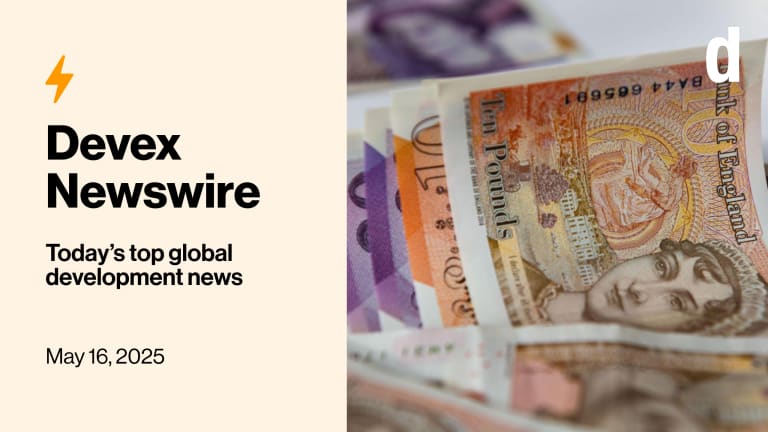
It’s a cultural melting pot. A tourist mecca. Home to the Queen of England, the head of the Commonwealth of Nations.
And for the international development community, London is one of the most vibrant hubs. The U.K. capital boasts world-class research institutions, powerful advocacy groups, and a host of social entrepreneurs, non-governmental organizations and consultancies that do good around the world. Then there’s a host of major donors led by the U.K. Department for International Development and European Bank for Reconstruction and Development.
London has always been cutting-edge, but recently, its aid community has been experiencing something of a renaissance: The U.K. government is among the few that have promised to increase development cooperation. And although – or perhaps because – DfID chief Andrew Mitchell’s declared goal to boost the agency’s “value for money” has made many development officials nervous, the city is bustling with creative energy.
So, what’s the lure of London? We asked some of the Devex 40 Under 40 International Development Leaders. Here’s what they said:
London’s international development community has the same attributes as London itself: open, inspiring, extremely diverse and forward-looking!
Laure Blanchard-Brunac, principal banker, European Bank for Reconstruction and Development
London has a dynamic and unique development community that has overwhelmingly been influenced by the finance sector and the city; it combines the rigor of finance with a strong desire to help the world’s poorest people.
Richard Leftley, president and CEO, MicroEnsure
London is the place where global commerce and finance meets global development donors, advocates and implementers. We are in a great position to deliver the mandate to apply the same standards of rigour, quality and effectiveness we ask in the commercial sector to the highly complex and challenging development sector.
Sally Faiz, global portfolio manager, The Children’s Investment Fund Foundation
Vibrant, creative and committed.
Rachael Barber, director of global community investment, Barclays
Vibrant, dynamic and leading edge.
Louise James, Europe lead, Accenture Development Partnerships
Vibrant. Not only is London a hub for NGOs, it is also home to great research institutions and universities that are engaged in exploring development issues.
Liz Ford, deputy editor of global development, The Guardian
At its best, it is not London’s development community, but an innovative mix of international public, private and NGO actors swapping ideas. At its worst, it is a rarified world of old hands and academics.
Peter Guest, U.K. business editor, The Huffington Post
In so many respects London’s international development community is world-leading, at influencing policy at the national and international level, at deepening public engagement and understanding, and in its sheer professionalism. These great strengths, however, can sometimes mean it’s a little slow when it comes to new ways of thinking beyond its traditional confines — like leveraging the huge domestic experience of social enterprise across the UK to create new and sustainable solutions geared towards international development goals.
Nik Kafka, founder and managing director, Teach a Man to Fish U.K.
At its best agenda-setting, confident, innovative and creative — at its worst complacent, inward-looking and politically naive. Luckily it’s more regularly the former.
Brendan Cox, director of policy and advocacy, Save the Children U.K.
Vibrant, exciting and collaborative. The organisations here don’t work in silos; we connect, discuss and work together.
Henriette Kolb, CEO, The Cherie Blair Foundation for Women
A place of vibrant innovation where collaboration wins out. Where partnerships are brokered and big issues are debated — but ultimately a community focused on enabling improvements on the ground such that the long-term independence of emerging and [least developed country] economies from development aid will be secured.
Andy Wales, global head of sustainable development, SABMiller
Interestingly, the international development social enterprise community and UK-focused social enterprise community operate quite separately. International development social enterprises, in my experience, orientate themselves more towards traditional international development charities than domestic social enterprises.
Tom Rippin, founder and CEO, On Purpose
London has so much potential to be the place where new ideas for development and justice flourish. If we could marry English post-colonial guilt (which is no bad thing when it spurs us to act) with the many strands of internationalism that arrive in London from all over the world, we would be a powerful force for change.
Unfortunately the development community is still somewhat enclosed in a westerners’ club which revolves more around “winnables” at the latest big summit than listening to what the rest of the world is up to and progressing our own education on development issues. It is striking how little the huge African, Latin or Asian diasporas in London engage in traditional “development” debates. Why not?
Jonathan Glennie, Center for Aid and Public Expenditure research fellow, Overseas Development Institute
Amongst the most diverse in the world active around the globe. An active community of expertise, with the potential for a wealth of skills and knowledge transfer amongst the different sectors.
Ned Wills, global director, Laureus Sport for Good Foundation
A dynamic and diverse group of individuals who are constantly challenged by the complexities of designing and implementing innovative development programmes!
Bernadette Sexton, practice leader in public administration and governance, Maxwell Stamp
Read more on U.K. aid reform:
More on the U.K. aid scene:
U.K. professional development:
Short Courses Spotlight Global Warming-Development Connection
International Development, the University of Sussex, and You
Read more about the Devex 40 Under 40 International Development Leaders in London.




